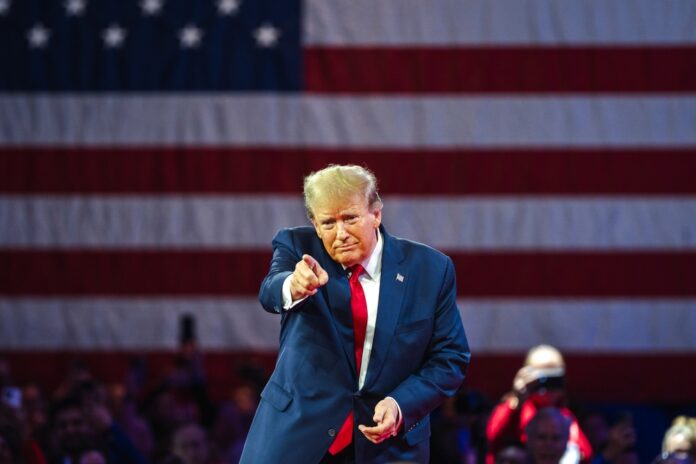Silicon Valley billionaire Mark Pincus, founder of Zynga and lifelong Democrat, announces his support for Donald Trump in the upcoming election, signaling a significant shift in tech industry politics.
At a Glance
- Mark Pincus, Zynga founder and longtime Democrat, declares support for Trump
- Pincus cites concerns over U.S.-Israel relations, anti-Semitism, and free speech
- Other tech billionaires, including Elon Musk, also shifting support to Trump
- Trend indicates changing political landscape in Silicon Valley
Pincus Breaks from Democratic Past
In a surprising turn of events, Mark Pincus, the founder of gaming giant Zynga and a self-described lifelong Democrat, has announced his intention to vote for Donald Trump in the upcoming election.
It looks like Big Tech billionaires are finally realizing Trump is the better option – and some are even willing to admit it publicly.
This declaration marks a significant departure from Pincus’s previous political stance, as he had donated over $1 million to Democratic presidential tickets in the past, including the Biden-Harris campaign.
Pincus, whose net worth is estimated at $1.4 billion, explained his decision in a statement that has sent ripples through the tech community. “I am voting for Trump. I have been a lifelong Dem, supporting the past 4 presidential campaigns at $1m each (including Biden/Harris). This past year I have seen too much,” Pincus said.
Concerns Driving the Decision
The tech mogul cited several key issues that influenced his decision to support Trump. Chief among these are concerns over U.S.-Israel relations, rising anti-Semitism, and what he perceives as threats to freedom of speech. Pincus, who is Jewish, emphasized the importance of Israel as a U.S. ally and expressed alarm at the current state of affairs.
“Israel is America’s most loyal ally and the only Democracy in the Middle East. It is fighting Iran on 7 fronts and yet it can no longer trust the US. Anti semitism in America is reaching levels not seen since pre WWII. And there seems to be a war against freedom of speech. Happily MSM is no longer trusted but if our sources of free speech like X are censored we move a step closer to Russia and China where the state is the only voice allowed,” Pincus said on X.
Pincus’s concerns extend beyond foreign policy and domestic issues. He also expressed frustration with the current political fundraising practices, particularly the frequent donation requests from Democrats. This sentiment reflects a growing disillusionment among some wealthy donors with traditional political funding methods.
Part of a Larger Trend
Pincus’s shift is not an isolated incident but part of a broader trend of Silicon Valley billionaires moving their support from Democrats to Trump. This movement includes notable figures such as Chamath Palihapitiya, Shaun Maguire, and most prominently, Elon Musk. David Sacks, another tech industry leader, recently hosted a fundraiser for Trump, citing issues with the Biden administration’s handling of the economy, foreign policy, border security, and legal fairness.
“America and Israel will be stronger under Trump,” Pincus asserted, encapsulating his belief in the potential impact of a Trump presidency on key issues.
The shift in political allegiances among tech billionaires is indicative of a changing landscape in Silicon Valley. Jacob Helberg, a tech policy expert, noted that “the social cost of supporting Trump in Silicon Valley has decreased,” suggesting a broader acceptance of diverse political views within the industry.
With the social cost decreasing, and if Trump does win this week, then we could see a dramatically different landscape in American business, with CEOs of Big Tech companies finally warming to the GOP and Trump in general.
Implications for Tech and Politics
This realignment of political support from tech industry leaders could have significant implications for both the technology sector and national politics. As influential figures like Pincus throw their weight behind Trump, it may signal a shift in how the tech industry approaches political engagement and policy advocacy.
The move also highlights the complex interplay between business interests, personal values, and political strategies in the tech world. As the 2024 election approaches, the tech industry’s role in shaping political discourse and influencing policy may become increasingly prominent, with potential impacts on innovation, regulation, and the broader economic landscape.

